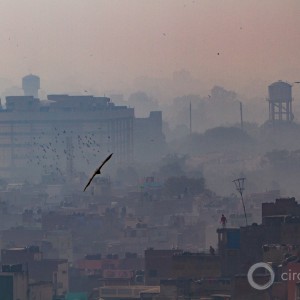The Global Rundown
In the conflict-affected regions surrounding Lake Chad, 5.6 million children are at a heightened risk for waterborne diseases as the rainy season begins. Yemen is facing “the worst cholera epidemic in the world” according to WHO officials. South Sudan is no longer in famine, but many in the country remain in danger of starvation. The Iraqi army freed civilians from Mosul’s Old City, but thousands are still trapped without food or water in the IS-controlled district. A UN-backed report discusses the inability of aid organizations to reach many high-risk war zones.
“Our international humanitarian community is failing too many people in too many places, from Syria and Yemen to South Sudan and Nigeria. Extreme risks and threats are paralysing too many organizations and their ability to deliver aid and save lives.” –Jan Egeland, Secretary General of the Norwegian Refugee Council, in reference to the challenges that aid workers face when trying to access violent conflict zones. The number of people needing emergency food, water, and healthcare is on the rise, but abductions and incidents against aid workers have also increased in recent years. UN News Centre
By The Numbers
5.6 million Number of children in danger of contracting diseases such as cholera or diarrhea as the rainy season begins in the Lake Chad Basin. Children in war-torn areas of Cameroon, Chad, Niger, and Nigeria are most at risk. All Africa
5,000 Estimated number of new cholera cases reported per day in Yemen. The World Health Organization released a statement over the weekend calling Yemen’s cholera crisis the worst in the world as the country’s ravaged healthcare system struggles to contain the disease. NPR
Science, Studies, And Reports
The latest Integrated Food Security Phase Classification (IPC) report reclassified the food shortages in South Sudan as a “food security emergency”—one step below famine. According to the report, humanitarian assistance helped ease the country out of famine. Despite the progress, however, nearly two million South Sudanese still face starvation. IPC
On The Radar
Iraqi government forces continue to recapture Mosul from IS, but the battle for Old City is proving to be the deadliest yet. Despite the Iraqi army’s efforts to free civilians, several civilian casualties have been reported, and an estimated 100,000 Iraqis remain trapped in the district without adequate food or water. Reuters
Hotspots H2O Facebook Live
Join Circle of Blue on June 29th at 12:00pm EST as Hotspots H2O goes Facebook Live to provide a more in-depth conversation on the role of water plays in conflict in the Middle East. Circle of Blue Facebook
Kayla Ritter is a recent graduate of Michigan State University, where she studied International Relations and Teaching English to Speakers of Other Languages. She is currently based in Manton, Michigan. Kayla enjoys running, writing, and traveling. Contact Kayla Ritter




